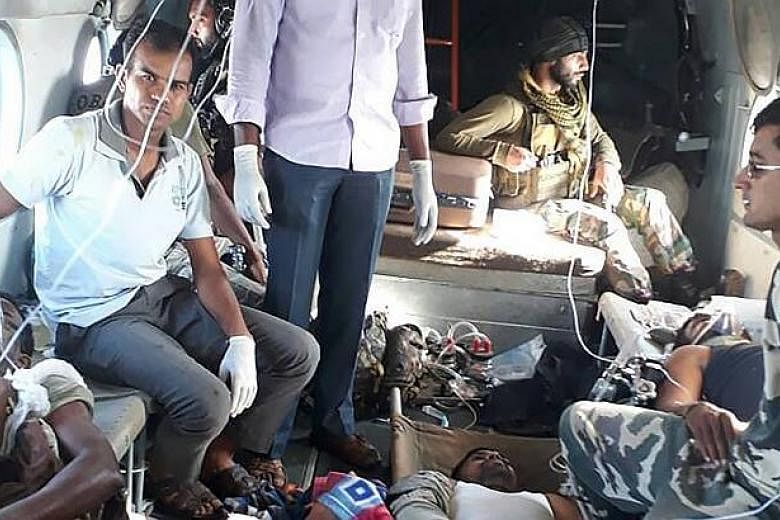NEW DELHI (THE STATESMAN/ASIA NEWS NETWORK) - It would be with a degree of satisfaction that the Central Reserve Police Force just "reported" over 200 special operations, the apprehension of 72 alleged insurgents and the seizure of a considerable quantity of weapons and munitions in the Maoist-infested "Red Zone".
Happily, the home ministry "sources" who highlighted the successes did not attribute them to anything as fanciful as the Samadhan scheme to deal with the Maoists just announced by Minister of Home Affairs Rajnath Singh, nor were they projected as being to the credit of the long-overdue appointment of a head of that heavily-tasked paramilitary organisation.
It would certainly be of some significance if the plans for greater involvement of the local police have paid off in the latest operations against Left Wing Extremists; for they alone can provide the necessary intelligence inputs and provide a better appreciation of the conditions on ground.
Hopes that some of the ground dramatically "lost" in the 24 April ambush having been regained would be boosted by the Commando Battalion for Resolute Action (CoBRA) unit of the force having mounted 98 operations in Chhattisgarh's Sukma sector alone, and nabbing 15 insurgents who were involved in that gory strike against the Central Reserve Police Force (CRPF).
It would, however, be premature to assume that the recent action covering some 20 villages have tilted the scales in favour of the paramilitary. The track record points to a cyclical pattern, the force establishing "dominance" over some areas, the insurgents then striking back viciously.
That is the real challenge for the Central and state governments; they must develop the capacity to sustain the pressure over an extended period. That would be critical to loosening the stranglehold the Maoists appear to have taken on the local populace. While pushing ahead with development projects is no less important, the paramilitary cannot afford to relax: admittedly a difficult proposition in generally unfavourable climate and terrain conditions.
There also has to be a concerted effort at choking the supply lines to the insurgents - it would be silly to believe that all their weapons, ammunition, explosives and radio-sets come from their "recoveries" from ambushed cops. The theory that demonetisation would have a dislocating impact on insurgencies has been proved hollow.
The "new" CRPF chief said he would be persuading the state police to deploy their best officers on counter-insurgency duties - the union home minister has the political clout to ensure that such priority is accorded over an extended period. Unfortunately North Block seems to lack the "stomach" for long-drawn battles of attrition and gets carried away with superficial success.
The Maoist "problem" is not a recent development, but only band-aid solutions are applied. Even in terms of adequate medical cover not enough has been done. Rajnath Singh's problems are indeed "inherited", sadly he does not inspire confidence that he will "compensate" for the limited competence of his predecessors.
The Statesman is a member of The Straits Times media partner Asia News Network, an alliance of 22 news media entitites.

